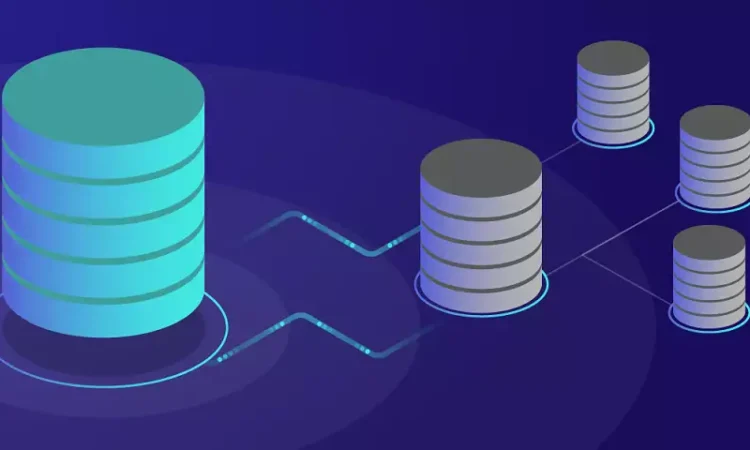
NoSQL databases have become an increasingly popular choice in full-stack development due to their flexibility, scalability, and ability to handle unstructured data. As the demand for highly scalable and efficient applications grows, developers are turning to NoSQL databases to meet the needs of modern software. Unlike traditional relational databases, NoSQL databases are designed to store, manage, and retrieve data in a way that aligns with the requirements of today’s data-intensive applications. For developers aiming to stay competitive in the tech industry, enrolling in a Java Full Stack Developer Course is an excellent step towards mastering NoSQL databases and staying relevant in an ever-evolving tech landscape.
Understanding NoSQL Databases
NoSQL databases, also known as non-relational databases, are built to accommodate various data models, offering a more flexible way to store and manage data than relational databases. While relational databases structure data using tables, rows, and columns, NoSQL databases can store data in various forms, including key-value pairs, documents, wide-column stores, and graph formats. This flexibility makes NoSQL databases ideal for handling large volumes of unstructured or semi-structured data — data types that are becoming increasingly common in modern applications.
In a Java Full Stack Developer Course, students are introduced to different types of NoSQL databases such as MongoDB, Cassandra, Redis, and Couchbase, each of which is designed to solve specific data storage and retrieval challenges. For example, MongoDB is a document-oriented database that excels at handling JSON-like data structures, making it a popular choice for applications that require high flexibility and the ability to store complex objects. Similarly, Cassandra is known for its ability to scale horizontally, making it an ideal choice for distributed systems that need to handle large amounts of data across multiple servers.
Mastering NoSQL databases means understanding the trade-offs between consistency, availability, and partition tolerance, commonly known as the CAP theorem. A Java Full Stack Developer Course provides developers with the skills and knowledge to effectively leverage these databases in real-world applications, helping them build scalable, reliable, high-performance solutions.
Advantages of NoSQL in Full Stack Development
One of the most significant advantages of NoSQL databases is their ability to scale horizontally. Unlike traditional relational databases, which require costly vertical scaling (adding more resources to a single server), NoSQL databases are designed for horizontal scaling. This means they can expand across multiple servers or nodes, making them much more cost-effective and efficient for large-scale applications. This ability to distribute data across several servers ensures high availability and redundancy, crucial for applications with large user bases or heavy traffic.
In addition to scalability, NoSQL databases are known for their performance and speed, particularly when dealing with big data and real-time web applications. NoSQL databases can handle high throughput and low-latency operations, making them ideal for use cases such as real-time analytics, recommendation engines, and IoT applications. These performance improvements are especially important for full-stack developers who need to build responsive, high-performance applications.
By enrolling in a Java Full Stack Developer Course, developers can gain hands-on experience working with NoSQL databases. Such courses typically include practical projects where students learn how to implement NoSQL databases into their applications, optimise performance, and handle the challenges of managing distributed data. Understanding how to make the most of NoSQL databases in terms of performance and scalability is a crucial skill for full-stack developers, allowing them to build applications that can efficiently handle both current and future data loads.
Integration with Java in Full Stack Development
Java is a powerful and widely used programming language in full-stack development. Its compatibility with NoSQL databases makes it an invaluable skill set for developers. Java provides robust libraries and frameworks that simplify the integration of NoSQL databases into full-stack applications. Two of the most prominent tools for working with NoSQL databases in the Java ecosystem are Spring Data and Hibernate OGM (Object/Grid Mapper).
Spring Data is a part of the larger Spring Framework and provides easy integration between Java applications and NoSQL databases like MongoDB, Cassandra, and Redis. Spring Data abstracts much of the boilerplate code needed to interact with a database, allowing developers to focus more on the business logic of their applications. By using Spring Data, full-stack developers can create repositories, perform CRUD operations, and query NoSQL databases with minimal effort. Additionally, Spring Data offers support for advanced features such as pagination, sorting, and caching, making it easier to manage large datasets.
Hibernate OGM, on the other hand, extends the popular Hibernate ORM (Object-Relational Mapping) framework to support NoSQL databases. It allows developers to map Java objects to data in a NoSQL database, similar to how Hibernate maps objects to relational databases. This makes it easier for developers familiar with Hibernate to start using NoSQL databases without learning an entirely new API.
A Java Full Stack Developer Course covers these tools in-depth, providing students with the knowledge and skills to integrate NoSQL databases into their Java applications. Learning to work with Spring Data, Hibernate OGM, and other Java libraries is essential for full-stack developers who want to build scalable, high-performance applications using NoSQL databases.
Preparing for the Future of Development
As the demand for real-time data processing and scalable applications grows, the importance of NoSQL databases in full-stack development will only increase. Future-proofing your career means staying updated with these technologies and knowing how to implement them effectively. Taking Full stack developer classes ensures you’re equipped with the latest knowledge and expertise, making you a valuable asset in the tech industry.
In conclusion, working with NoSQL databases is essential for modern full-stack development. Full-stack developer classes provide the training and expertise needed to harness the power of these databases, ensuring you can build efficient, scalable, and high-performing applications in today’s dynamic tech environment.
Business Name: ExcelR – Full Stack Developer And Business Analyst Course in Bangalore
Address: 10, 3rd floor, Safeway Plaza, 27th Main Rd, Old Madiwala, Jay Bheema Nagar, 1st Stage, BTM 1st Stage, Bengaluru, Karnataka 560068
Phone: 7353006061
Business Email: [email protected]
